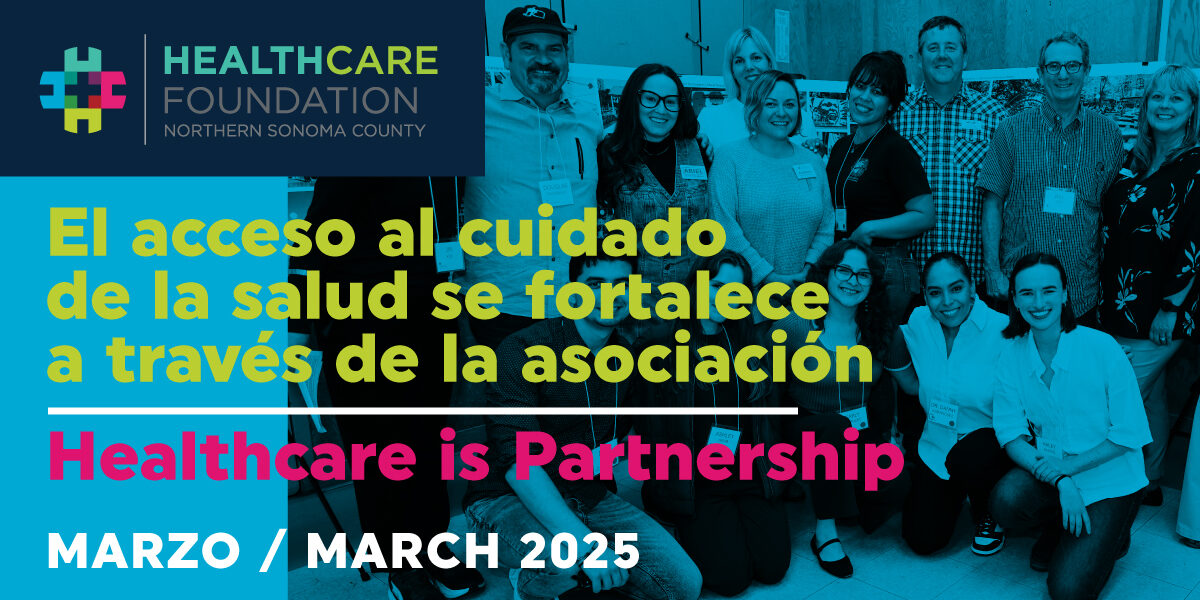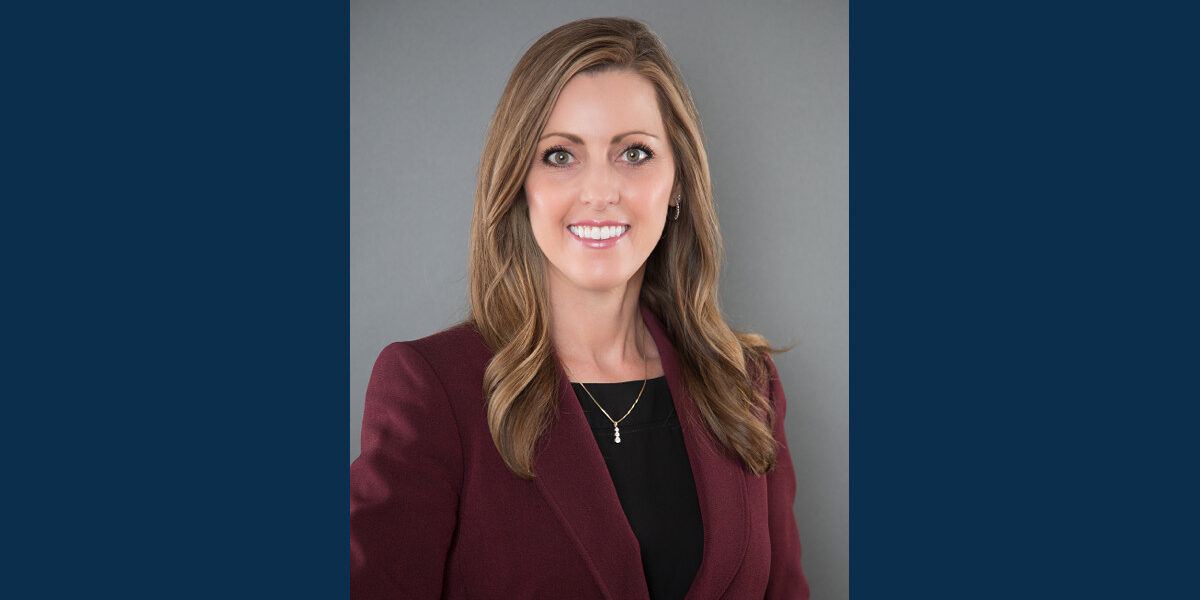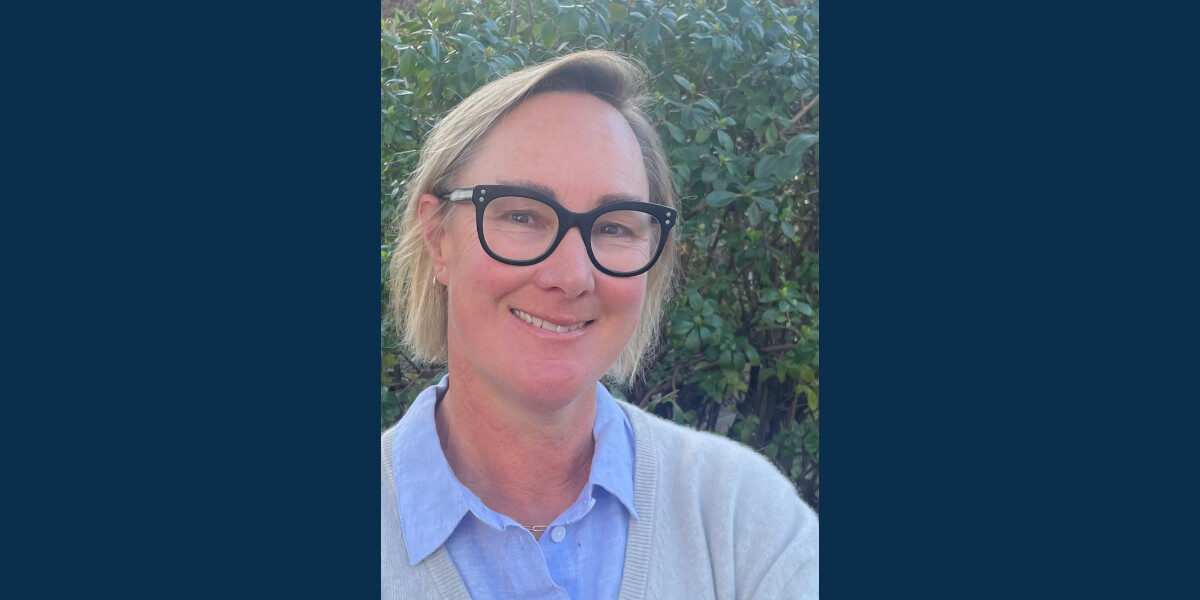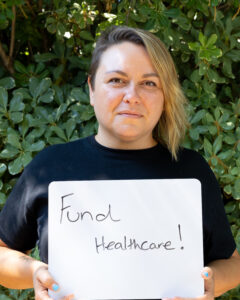
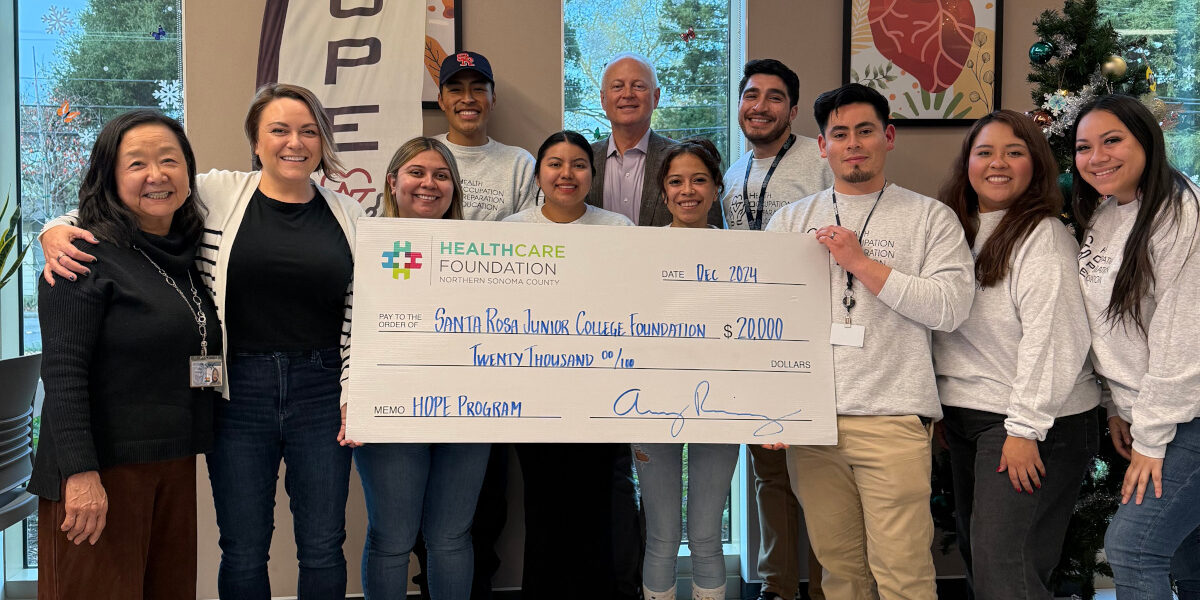
Grantee Spotlight: Santa Rosa Junior College HOPE Program
4 min read. Finding resources and community through the HOPE Program at SRJC.
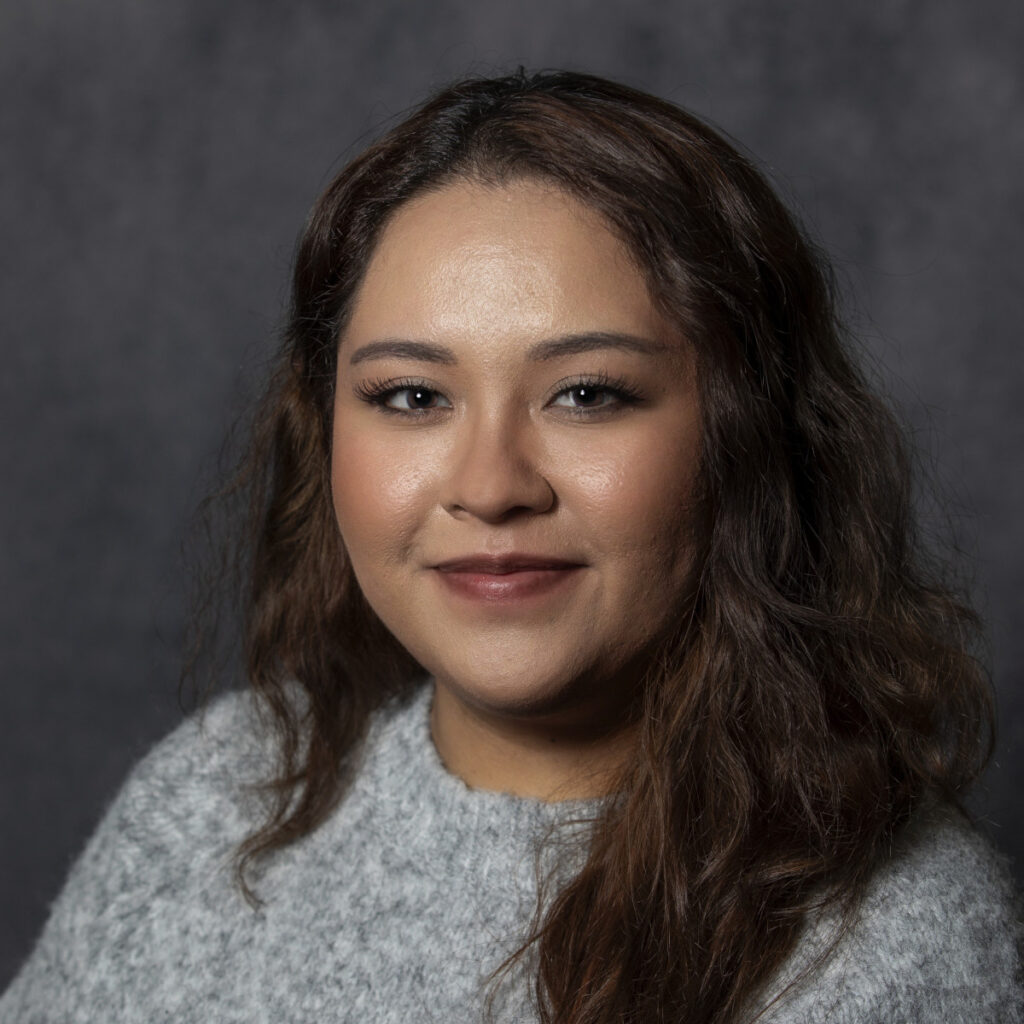
The Health Occupation Preparation Education (HOPE) Program at Santa Rosa Junior College (SRJC) advances the success of underrepresented and first-generation students in healthcare careers. It plays a crucial role in building a diverse, competent healthcare workforce, benefiting the broader community.
HOPE’s transformational impact attracts strong support from the Healthcare Foundation. As part of its focus on healthcare workforce pipelines, the Foundation, with donor support, funds scholarships that HOPE provides to qualifying students. These stipends help cover unanticipated costs, emergency expenses, workforce development workshops, and more.
HOPE’s Program Coordinator, Arley Rodas Lara, stepped into the role previously held by Healthcare Foundation Board member Daisy Cardenas, who first joined HOPE as a Student Success Specialist in 2019.
“Daisy is still very much involved,” says Arley. “We give her updates on how the program is going. It’s because of Daisy’s hard work and dedication that the program is still alive and able to continue.”
Arley leads a small, dedicated team of two Student Success Specialists. Due to funding limitations, only Arley’s position is full-time, while her colleagues work part-time. Together, they provide one-on-one support to 150 SRJC human sciences students in HOPE, though approximately 330 remain on a waiting list. “Capacity,” confirms Arley, “is the biggest challenge we face.”
“Because our program is very high-touch,” she explains. “We have case management, and we make sure each student is getting the exact support they need. Another issue is also funding-related: We offer scholarships for our students and we want to make sure we are able to offer it to every student who is eligible.”
A Sonoma County native and the daughter of parents from Mexico, Arley is herself a first-generation college graduate who understands the challenges these students face. She transferred from SRJC to UC Santa Cruz in 2019, earning a double degree in Psychology and Latin American / Latino Studies.
“HOPE is more than a program, it’s a lifeline for students who feel lost in the system.”
Arley Rodas Lara
“It was during my undergraduate journey at UCSC that I got into the student services side of education,” she says. “I focused a lot of my research on first-generation students in STEM and health sciences. I wanted to understand the struggle that a lot of us face and find ways to make the journey easier for the students who come after me.”
Her own journey, though successful, was not easy. “I unfortunately was one of those students who didn’t have the usual support systems. I didn’t have any mentors—my parents worked very hard to support me but never went to college or earned any degrees—so it was me paving the path for my younger sister.”
Now, she continues paving that path for others as HOPE Program Coordinator, a role she calls “very close to my heart.”
“HOPE is more than a program, it’s a lifeline for students who feel lost in the system. I have the privilege of being able to guide students through these challenges in higher education. I want to hand off all of my experience, my knowledge and skills and tips, to students who come into this program.”
That spirit of passing on knowledge is integral to HOPE’s culture. HOPE students often become tutors, helping peers in prerequisite health sciences classes. Others develop leadership skills to support fellow students.
A case in point is Genesis Schloss, a first-generation college student and young mother who joined HOPE in 2020. Now in her first semester of nursing school at SRJC, she credits HOPE staff with encouraging her to take on leadership roles.
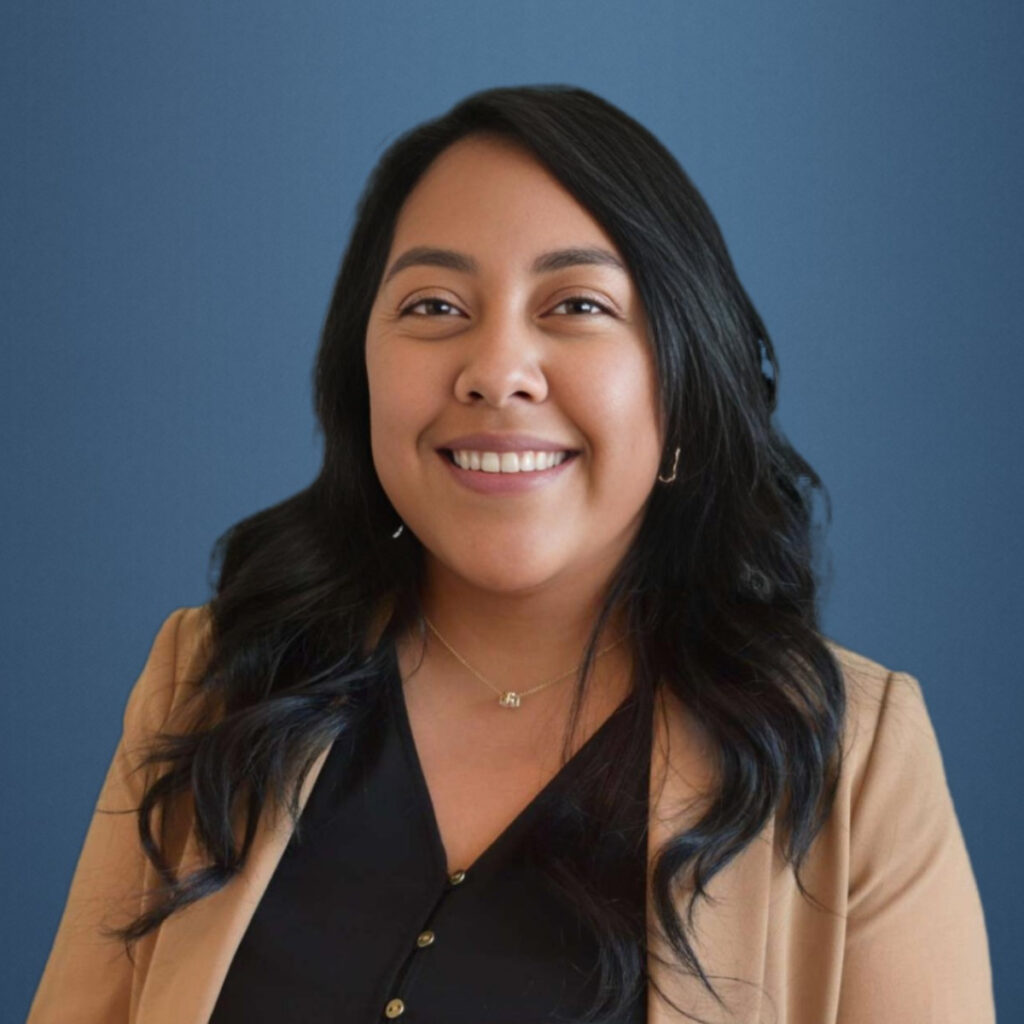
“I recently took a position with the Student Nursing Association to do high school outreach,” she explains. “I just did my first outreach on Friday. I encouraged the students to use the resources the high school has, and if they were to come to SRJC, I recommended the HOPE program.”
Genesis wants others to benefit from the support she found at HOPE. “It’s important to have that community that motivates you, that wants to see you succeed. I told them, too, ‘There are other students like you there, people that have challenges in their lives.’ It normalizes what you’re going through and tells you there is light at the end of the tunnel.”
“And the resources. I can’t emphasize enough what HOPE has,” she says. “I did a speed-mentor night, where I got to meet nurses who talked to me about their journey; I did CPR workshops. They got me ready for my TEAS (the test for entering the Nursing track), they even provided the book! And study groups: They taught me how to really study, a technique called active studying. I saw my grades go up as a result. I got A’s in all my prerequisites.
“I don’t think I could have done it without HOPE and everything they provided me to thrive in my school—the community, the workshops, the tutoring, it all contributed to my success.”
Genesis’s interest in nursing stemmed from her father’s serious illness, which left him paralyzed when she was in middle school. As the oldest of three children, she stepped up to support her mother in caring for the family.
“I saw my mom work overtime, and take on my father’s responsibilities,” she recalls. “I would visit my dad after school or, later, after he was transferred from Memorial here in Santa Rosa to San Francisco, Marin, and then San Jose, I would see him on weekends. I saw how nurses would treat my dad, and how they would comfort me during these difficult times. It made me want to be stronger for my family. I didn’t know what college would be like, but that was an eye-opener for me. I knew I wanted to be in healthcare.”
As a first-generation student, the path to college was unfamiliar. When her high school principal told her that, since she wasn’t in college prep classes, junior college was her only option, she insisted to her counselor that she wanted to attend a four-year university. Her counselor guided her through the requirements and encouraged her to take SRJC summer health career classes.
“That experience increased my interest,” she says. “I got hands-on experience; I got to meet people. I knew then, ‘I want to do nursing.’”
“[HOPE] changed my life, actually. I met a community that I’d been seeking for the longest time [and] I got to see other moms who were in the Nursing Program and also raising a family. That motivated me.”
Genesis Schloss
After graduating, she enrolled at SRJC while helping support her family and, later, raising her own child. Struggling to stay motivated, she learned about HOPE tutoring through a friend. Though not initially in the program, she was warmly welcomed.
“That changed my life, actually. I met a community that I’d been seeking for the longest time,” she says. “I got to see other moms, too, who were in the Nursing Program and also raising a family. That motivated me. I thought, ‘I can do this for my family.’ I joined HOPE and just felt comfortable there.
“Now I’m in my first semester in Nursing School,” she continues. “I got in on my first try. HOPE staff guided me through the process. They were my second pair of eyes on applications. They would check up on me. ‘Have you done this, or completed that?’ They made sure I did everything before the deadlines, that I was on track and OK.”
“I’m excited to see the growth in myself over these last five years with HOPE,” says Genesis. “I was really shy at first. Now I’m in leadership and giving my testimony to other students.”
“I commend our health sciences students for taking on this challenge and pursuing their dreams,” says Arley, “and for working extremely hard to get where they want to be.
“A large percentage of our students are Latinos,” she notes. “There’s a lot of uncertainty right now given the political climate. There’s a lot of self-doubt and fear among our students. At such a time, it’s even more important for us to be here to support them, to offer words of encouragement and guide them. It goes beyond academics. We help them with workforce development, but also with just being human out in the world.”

Related News + Stories
Invest in Our Community
Your support is vital to our collective vision of eliminating health inequities in northern Sonoma County.
Donate
